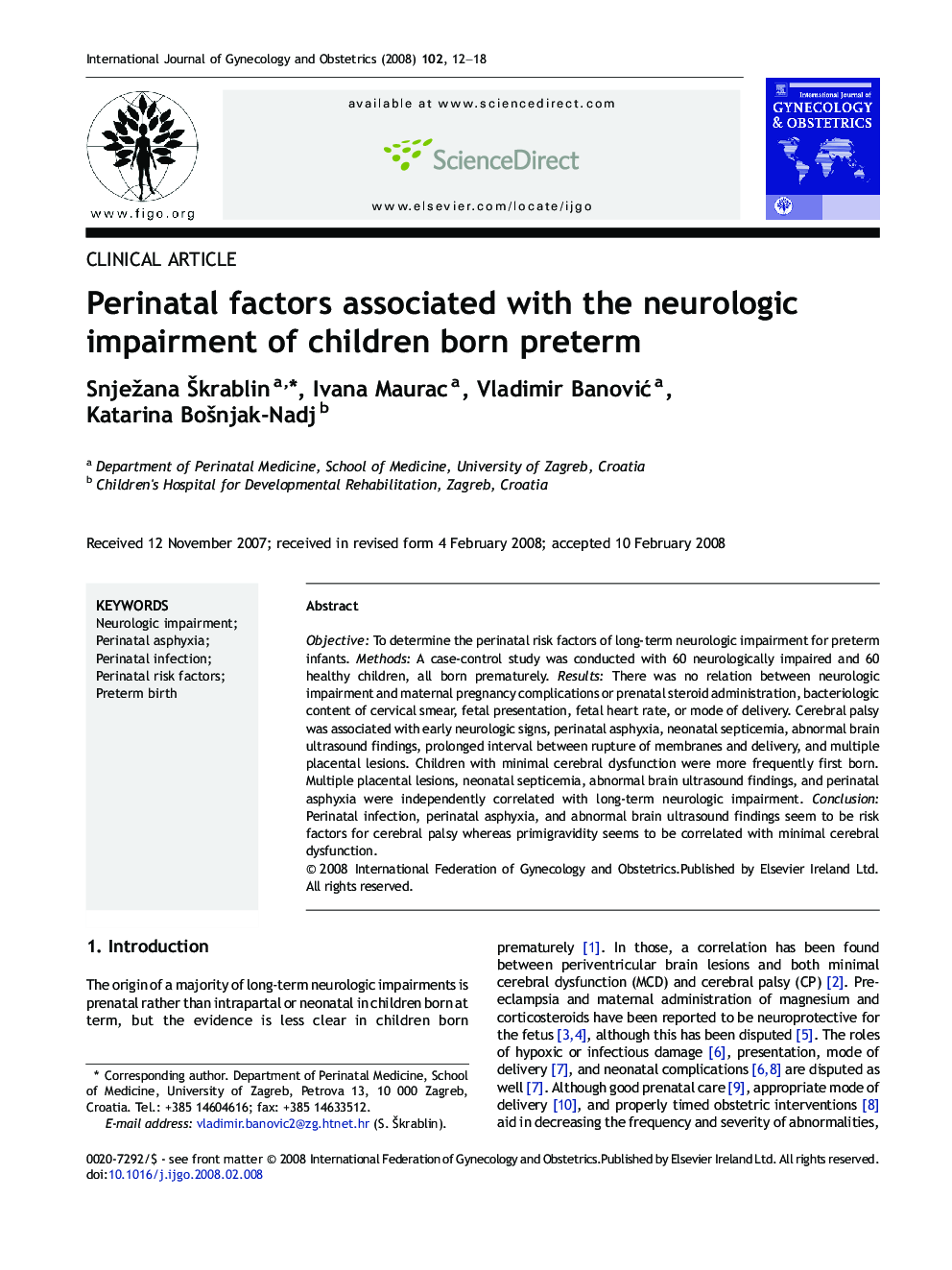| Article ID | Journal | Published Year | Pages | File Type |
|---|---|---|---|---|
| 3950201 | International Journal of Gynecology & Obstetrics | 2008 | 7 Pages |
ObjectiveTo determine the perinatal risk factors of long-term neurologic impairment for preterm infants.MethodsA case-control study was conducted with 60 neurologically impaired and 60 healthy children, all born prematurely.ResultsThere was no relation between neurologic impairment and maternal pregnancy complications or prenatal steroid administration, bacteriologic content of cervical smear, fetal presentation, fetal heart rate, or mode of delivery. Cerebral palsy was associated with early neurologic signs, perinatal asphyxia, neonatal septicemia, abnormal brain ultrasound findings, prolonged interval between rupture of membranes and delivery, and multiple placental lesions. Children with minimal cerebral dysfunction were more frequently first born. Multiple placental lesions, neonatal septicemia, abnormal brain ultrasound findings, and perinatal asphyxia were independently correlated with long-term neurologic impairment.ConclusionPerinatal infection, perinatal asphyxia, and abnormal brain ultrasound findings seem to be risk factors for cerebral palsy whereas primigravidity seems to be correlated with minimal cerebral dysfunction.
